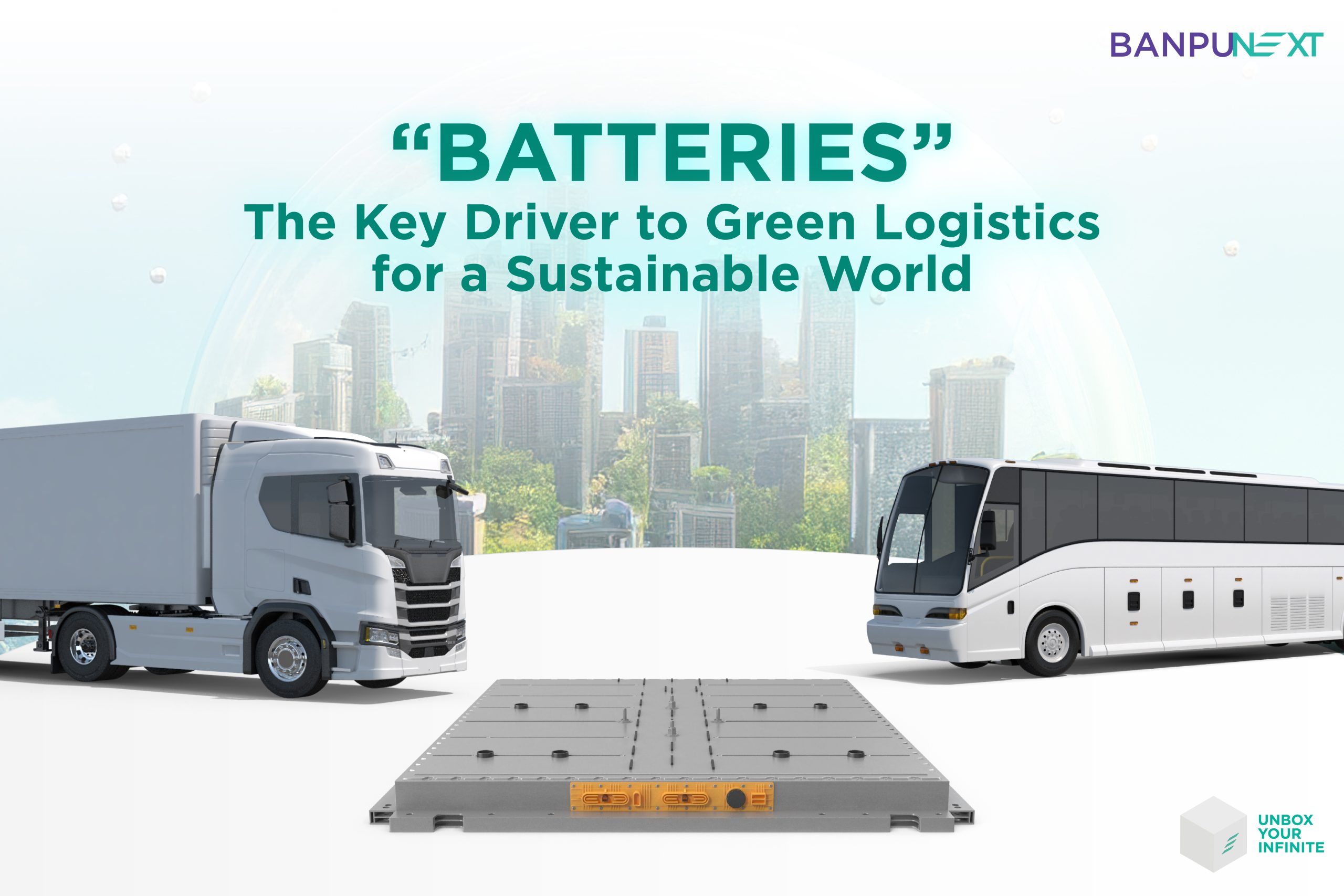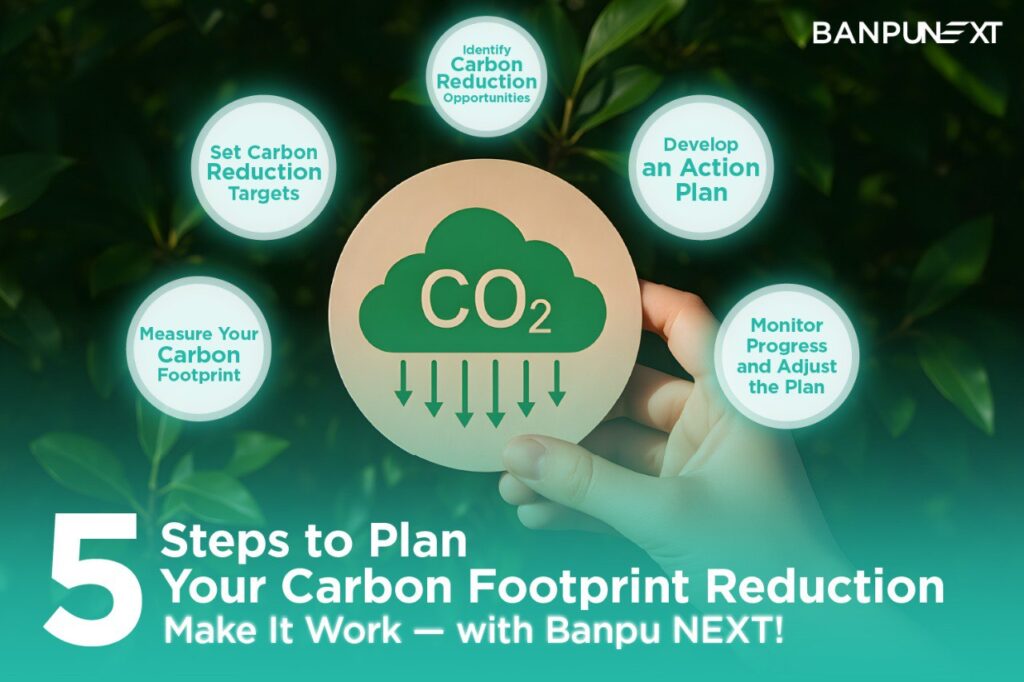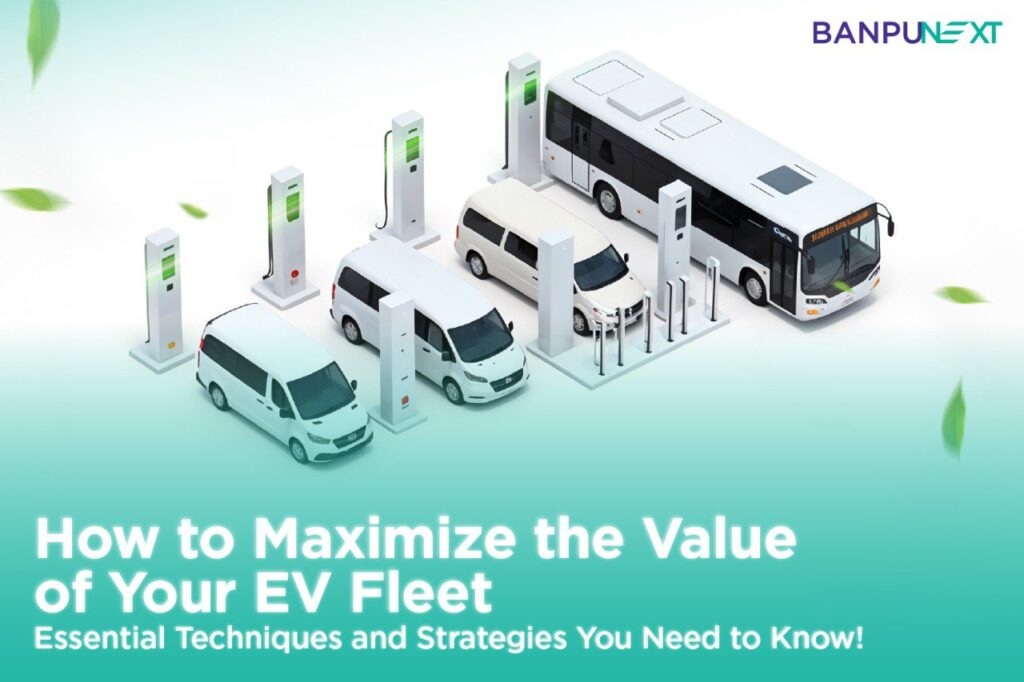The transportation sector is one of the largest contributors to greenhouse gas emissions. According to a report by the International Energy Agency (IEA), 74.5% of transportation emissions come from road vehicles, with 45.1% from passenger vehicles (cars, buses) and 29.4% from freight trucks.
Furthermore, the World Economic Forum reveals that medium and heavy-duty trucks release an average of 1,800 million tons of carbon dioxide annually. As a result, many countries have signed the ‘Global MOU on Zero-Emission Medium and Heavy-Duty Vehicles’ to support the use of zero-emission trucks and buses by 100% by 2040.
While Thailand may not be a signatory to this agreement, the government recognizes the importance of this issue. The transportation sector in Thailand accounts for 30% of the country’s total carbon emissions, with road transport being the largest contributor at 87%. Therefore, the goal for reducing greenhouse gas emissions from 2021 to 2030 should focus on reducing carbon emissions from road transport, primarily by promoting electric vehicles.
Batteries: The Core of Electric Vehicles
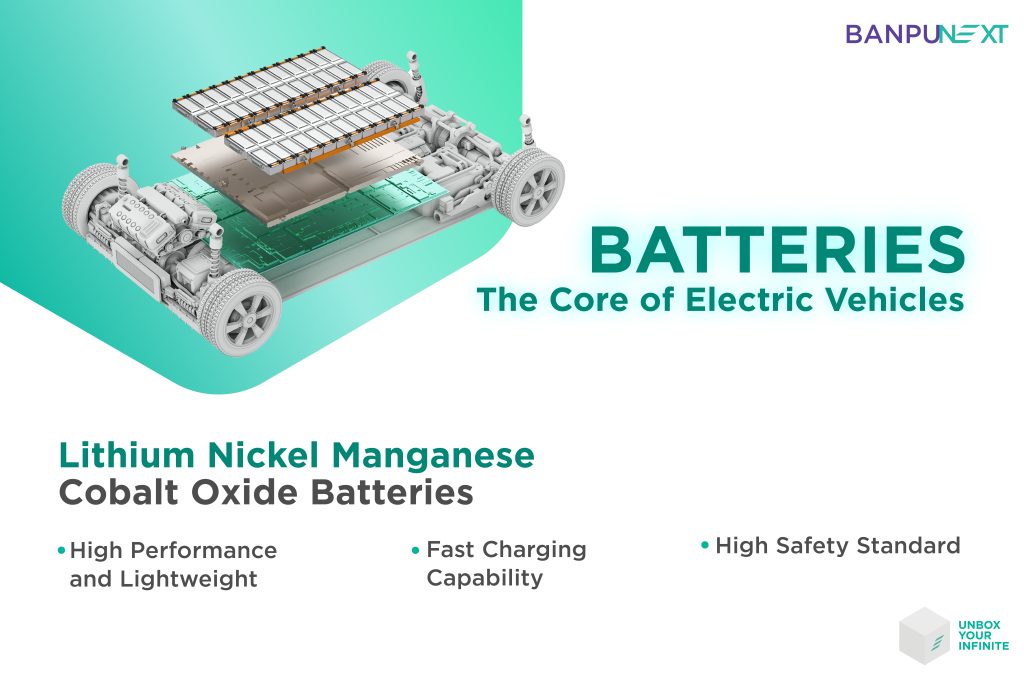
Batteries serve as the power source for many devices, including electric vehicles. Lithium Nickel Manganese Cobalt Oxide (NMC) batteries are lithium-ion batteries commonly used in E-Buses and E-Trucks.
Lithium Nickel Manganese Cobalt Oxide Batteries
These batteries use nickel-based cathode material, manganese, and cobalt as cathode materials, providing long-lasting energy storage and the highest safety standards. The advantages of NMC batteries include:
1) High energy storage capacity, power efficiency, and lightweight, making them ideal for commercial electric vehicles.
2) Fast charging capability, allowing them to charge more quickly than other types of batteries.
3) High safety standards, reducing the risk of thermal runaway and other related dangers.
E-Bus and E-Truck: The New Era of Eco-Friendly Transportation
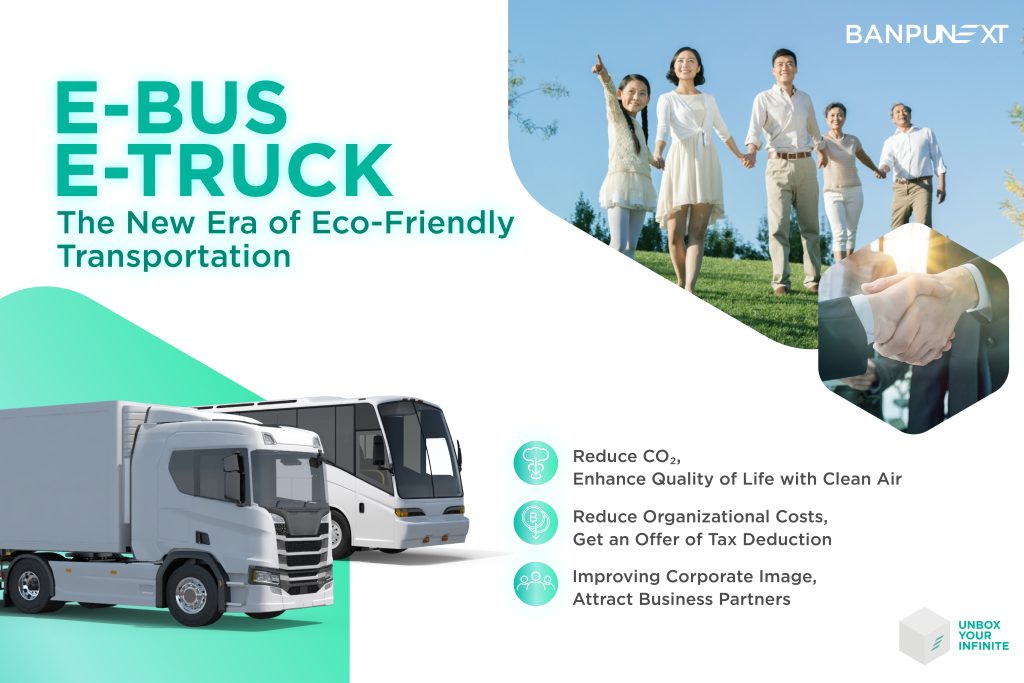
Adopting electric vehicles in business transportation systems, such as E-Bus and E-Truck, is a crucial step in reducing environmental impact. This transition not only helps decrease carbon emissions but also contributes to a sustainable society.
1) Enhance quality of life with clean air: E-Buses and E-Trucks are electric vehicles powered by clean energy, which are free of pollutants and exhaust emissions. So, it can help reduce carbon emissions, other greenhouse gases that cause global warming, and fine particles like PM2.5.
2) Reduce organizational costs: Electric vehicles help lower long-term operating costs due to their lower maintenance expenses than fuel-powered vehicles. Additionally, the Thai government supports the private sector’s use of electric vehicles by offering tax deductions up to two times (subject to conditions) to encourage businesses to reduce carbon emissions and work towards the goal of carbon neutrality by 2050.
3) Improving the corporate image and benefiting society: Utilizing electric vehicles in business transportation demonstrates a dedication to reducing carbon emissions, creating a positive image that can attract business partners seeking to reduce carbon emissions in their supply chains (Scope 3).
Driving Every Journey with Clean Energy
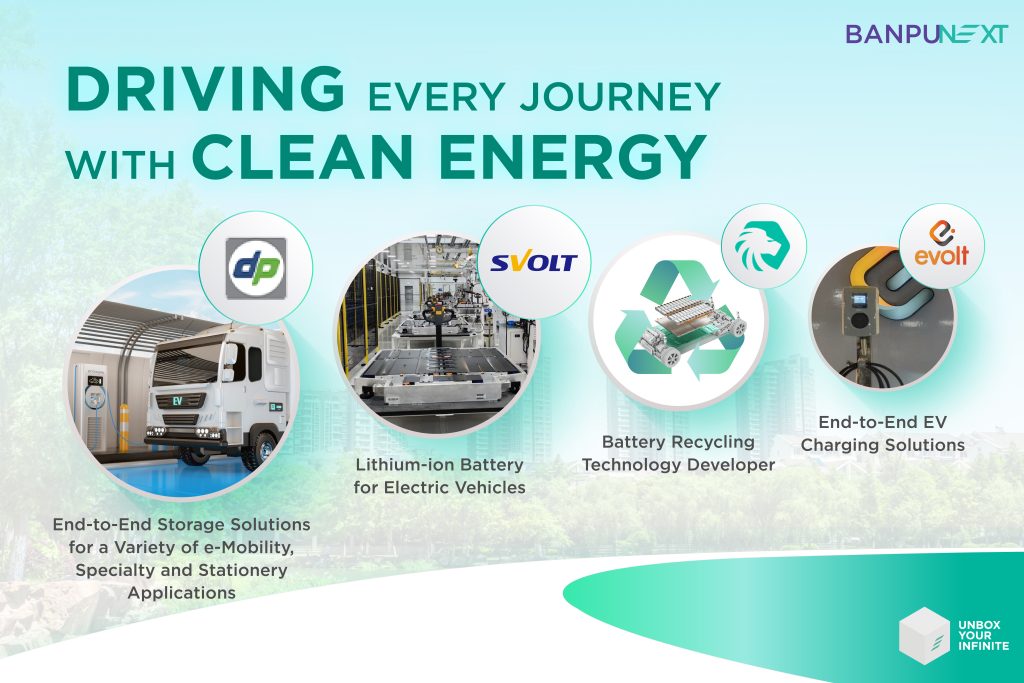
With a commitment to leading society towards a Net Zero in the future, Banpu NEXT supports every eco-friendly journey. We are dedicated to creating an ecosystem that promotes sustainable energy utilization and contributes to the goal of Net Zero emissions through various partnerships:
- Durapower: Developer of Energy Storage Systems for heavy-duty electric vehicles used in various industries.
- SVOLT: Manufacturer and distributor of lithium-ion battery for passenger electric vehicles
- Green Lion: Battery recycling technology developer
- EVOLT: End-to-end EV charging solutions
Moreover, Banpu NEXT collaborates with Durapower to supply NMC batteries for electric buses to Cherdchai Motor Sales through the joint venture, DP NEXT. This advancement marks the beginning of driving Thailand’s E-bus and E-Truck market towards green logistics.
Electric vehicle utilization for business, such as E-Bus and E-Truck, goes beyond advancing transportation businesses. It is an investment in the future that helps reduce environmental impacts, a crucial step in creating a sustainable society in all dimensions.
Reference
- https://ourworldindata.org/co2-emissions-from-transport
- https://www.weforum.org/agenda/2023/11/how-to-scale-up-accelerate-supply-zero-emissions-trucks/
- https://workpointtoday.com/electric-truck/
- https://globaldrivetozero.org/mou-nations/
- https://tdri.or.th/2023/12/transition-transportation-lowcarbon/
- https://www.lifepo4-battery.com/News/advantages-disadvantages-of-nmc-battery.html
- https://policywatch.thaipbs.or.th/article/economy-22
- https://www.thanatwit.com/blog14-2/

